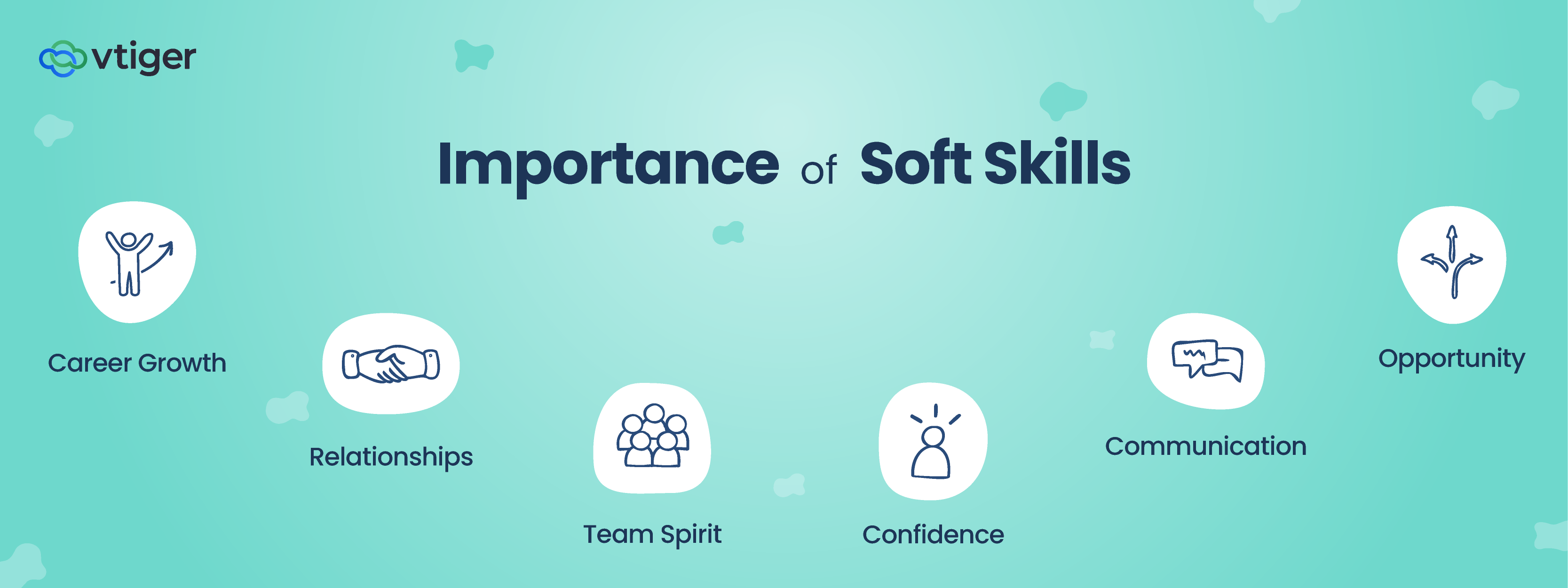John C was a star performer at work, often winning rewards and recognition for his contributions. Over time, he became overconfident. His superiors noticed that he was avoiding projects with large teams and preferred solo projects. On the floor, he was found to be looking out only for himself. Things came to a head when he refused to step in for a colleague whose parent had to be rushed to the emergency. When his manager reprimanded him, he lost his cool and quarreled with his manager.
Do you think John could have been empathetic towards his colleague? Or that he should have been open to feedback from his manager? Looks like John lacks empathy. He also does not want to collaborate with his colleagues or create a cordial atmosphere at work.
You must have seen or heard of such situations at work. In fact, some of us could have been in John’s boots too. John lacks certain skills, often referred to as soft skills.
Most of us have heard, read, or trained in soft skills. For many, soft skills simply mean communication or presentation skills. They include a whole lot more, and in this blog, you will learn how important they are for a successful career.
Soft Skills and Hard Skills
What exactly are soft skills?
Soft skills are personality traits that help you interact ‘effectively and harmoniously with other people in a defined environment’. The term ‘soft skills’ was first created by the US Army in the 1960s and essentially meant social skills that did not employ machinery.
Today they include language skills, leadership qualities, empathy, behavior, collaborative spirit, etc.
What is the difference between soft skills and hard skills? Is there even a term called hard skills? (Yes, there is a term called hard skills.)
Soft skills are related to skills that do not require you to operate machines or objects. They are connected to emotional intelligence. We can be trained in soft skills, but they can only be acquired with due exposure to people and experience over some time. The right side of our brain controls them. For example, empathy and communication.
Hard skills are related to intelligence quotient and can be taught. They help you operate machinery and objects and use logic at work. They are controlled by the left side of our brain. For example, programming and coding, operating a crane, a surgeon’s job, etc. They are acquired through certifications, training, college courses, and work experience.
Types of soft skills that help you with your career
Many have tried to categorize soft skills, and in the corporate world, they are usually grouped into the following three categories:
- People skills – Empathy, Teamwork
- Social skills – Communication Skills, Interpersonal Skills
- Professional skills (Career attributes) – Leadership, Work Ethics, Flexibility/Adaptability, Problem-solving, Time Management, Creativity, People Management, etc.
Do you have any of the above skills, or have you noticed them in the people around you? Let us see why these are important and necessary in the workplace.
So why are soft skills important in the workplace?
Soft skills often take a back seat while hard skills are given priority since they are a means to a livelihood. You can have top-notch technical skills, but a lack of soft skills will limit your prospects.

Today, a hybrid work environment is becoming the norm, and working with a global workforce is common. Your team members (and customers)could very well be spread all over the world. To strive and excel in today’s complicated and technologically advanced work dynamics, one needs to acquire a whole gamut of soft skills.
A Harvard University study found that 80% of the success and achievements in one’s life are determined via soft skills and only 20% by hard skills.
Soft skills are important because they help you:
- Define your personality at work
- Build confidence
- Build empathy
- Communicate well with co-workers, the management, and customers
- Build relationships at work
- Create and adhere to goals
- Create opportunities to grow
- Work ethically
- Take on ownership and challenges
- Resolve conflicts
- Become a team player
- Take on leadership roles
- Contribute to the success of the company
Soft skills help in the overall development of your personality. They improve your communication skills and build confidence. You will be able to really talk to your co-workers and managers – share your knowledge, concerns, and ideas.
As your confidence levels build, you will be able to present your ideas better. You will have clarity on your career goals, and your willingness to take on challenges will increase. Indirectly, they help will help you grow in your career.
In a study conducted by Boston College, Harvard University, and the University of Michigan, researchers found that a group of workers that were given soft skills training were 12% more productive than the group that did not receive the training.
Soft skills can also help build empathy. Empathy is crucial for developing interpersonal relationships and creating a positive work culture. Positive work culture has a direct impact on productivity and efficiency.
Professionals who are aware of and trained in soft skills can create enriching experiences with customers. They know they are contributing to the success of a business.
In fact, Forbes reported that a study conducted by iCIMS found that 94% of recruiting professionals believe an employee with stronger soft skills has a better chance of being promoted to a leadership position than an employee with more years of experience but weaker soft skills.
Do you know soft skills help you build your personality traits? They are the parameters that human resources use to check if you can be placed in a crucial project and whether you can be a good project leader or a manager. Employees with the right soft skills are vital to an organization, and the management is always on the lookout for those with ‘special personality traits’.
Sometimes, your personality traits even tell your company if you are employable – if you are a good fit with the organization’s culture.
Do you have the essential soft skills that will help you succeed? Does your organization provide training in soft skills? If not, you can always sign up for courses available online.
Brush up on your soft skills. Be an asset to your organization and see your career soar.



